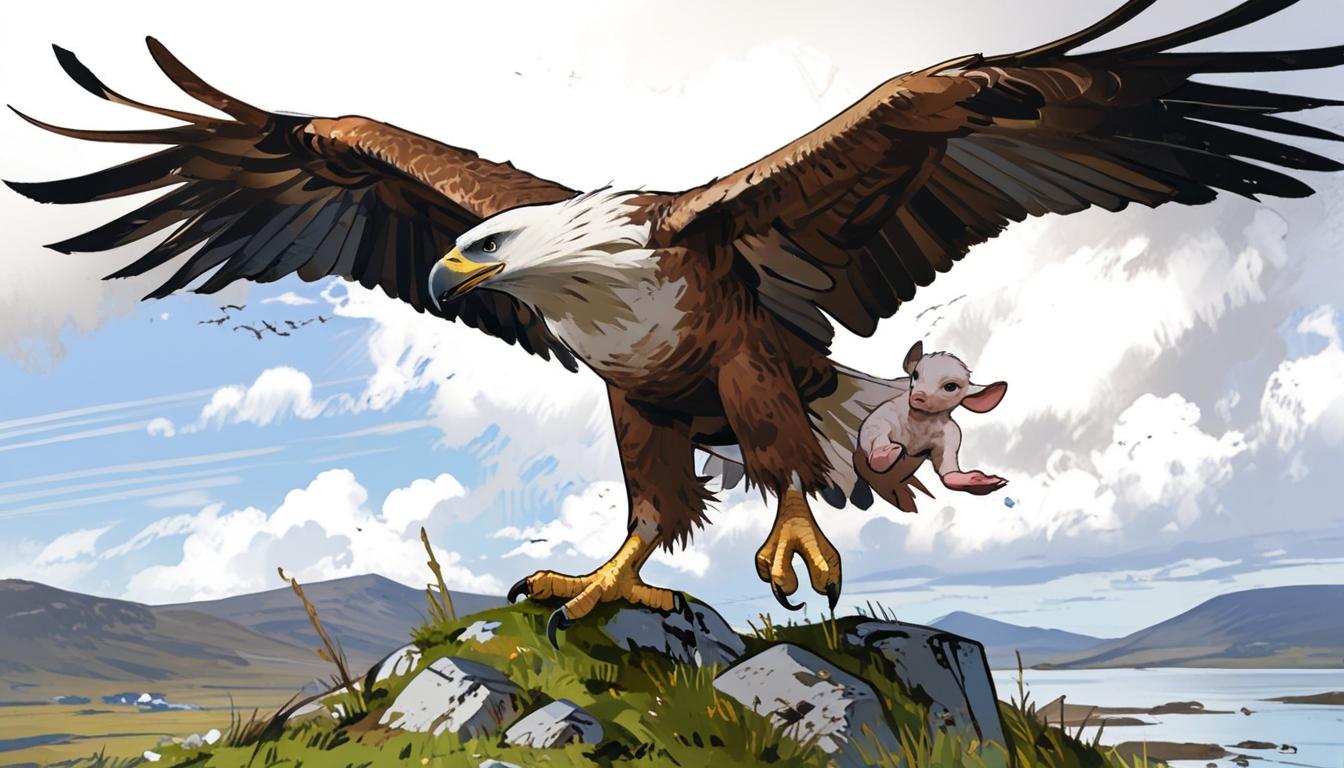Duncan Maclean, a 40-year-old part-time farmer in Uist, Outer Hebrides, encountered a distressing sight on Friday morning while tending to his flock of sheep. During his routine check, he witnessed three sea eagles, also known as white-tailed eagles, swoop down and seize two newborn lambs, lifting them away with their powerful talons. This incident marked a significant escalation in the ongoing issue that farmers in the area have been facing with the increasing population of these birds.
Maclean reported that he has already lost approximately six lambs to the eagles this season alone, noting that each lamb typically sells for between £80 to £100. Such losses pose a considerable financial burden for small-scale farmers like him, who manage around 200 ewes and 10 cows. "It's very frustrating and disheartening to see," he stated, adding that while the disappearance of lambs had been evident, witnessing the event first-hand provoked feelings of anger.
The sea eagle population in Scotland has seen a resurgence since the reintroduction of eaglets from Norway in 2007, which Maclean attributes to the increasing frequency of these predatory encounters. "It used to not be an issue at all," he expressed. "I remember starting to see one or two about five years ago, but there still wasn't a big problem. These days, you will see multiple in the air at any one time."
On the day of the incident, Maclean was assisting an ewe with her birthing process when one of the eagles hovered ominously overhead, prompting concerns for the newborn lambs. He has observed a notable hunting strategy employed by these eagles, which appear to specialise in targeting ewes that are giving birth to twins. They seem to swoop in and snatch away the firstborn while the ewe is preoccupied delivering the second. Maclean recounted, “We’ve had ewes who have scanned showing twin lambs and then when we have checked on them after giving birth, there’s only one lamb.”
Despite efforts to manage the situation—such as relocating sheep to different fields or using scare tactics like scarecrows—Maclean noted that the eagles are not easily intimidated. "It's tough to manage because the eagles have become a real problem for the farmers in the area," he said. "I know we're not the only people dealing with this." The challenges posed by these birds are becoming increasingly evident, raising concerns among local farmers regarding the sustainability of their livestock operations in an environment where wildlife interactions are becoming more frequent.
Source: Noah Wire Services
